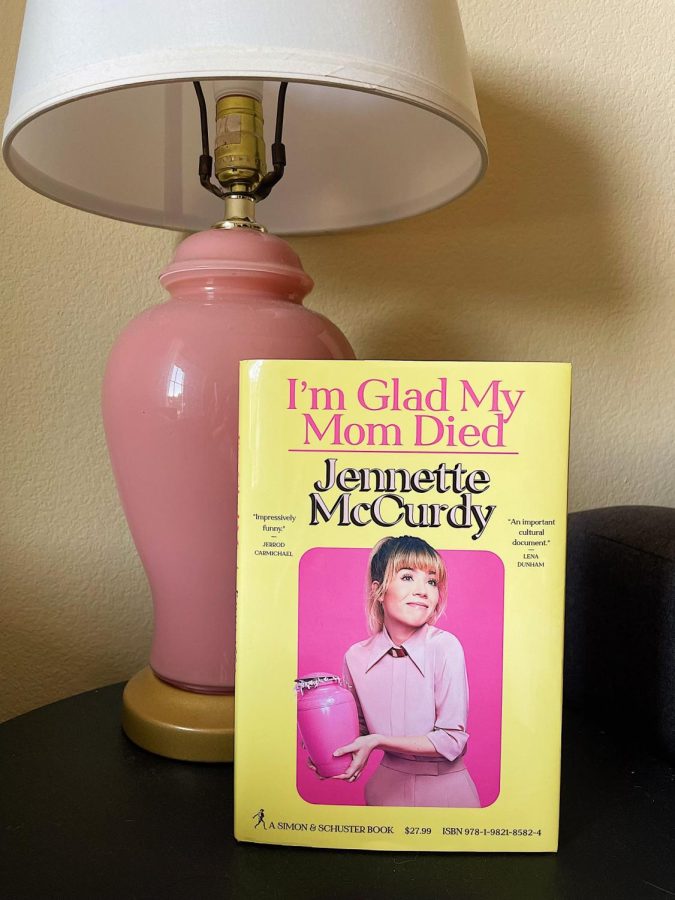Life beyond the scale
Jennette McCurdy unpacks childhood troubles in new book
November 7, 2022
Remember the blonde girl from Nickelodeon who liked to eat buckets of fried chicken and beat people up with a butter sock? If you are familiar with the Nickelodeon network, Sam Puckett probably came to mind. Sam — played by Jennette McCurdy — was introduced to the world through the television show “iCarly” and was seen again in a spin-off “Sam & Cat,” both of which garnered an abundance of attraction and shoved the actor into the public spotlight; but every spotlight casts a shadow somewhere.
In the newly released book, “I’m Glad My Mom Died,” McCurdy details her life in chronological order, starting with discussions of her childhood and the relationship between her and her mother. McCurdy’s mother — whose name was omitted from the book entirely — was the most selfless, caring person who always put McCurdy first, or so she thought. In the book, McCurdy recalls instances where her mother repeatedly manipulated and assaulted her.
The book described how McCurdy’s mother would make her feel like the most special person in the world; she would tell McCurdy that they were best friends and that she wanted nothing but the best for her. McCurdy’s mother always wanted to go into acting, but that dream died, so she suggested that McCurdy give it a try by saying she would “be so proud to see her daughter live out her dream.” Nervously, McCurdy did as her mother asked and stepped into the acting scene. She hated it. Being in the spotlight made her unhappy, anxious and uncomfortable, but when she tried to quit, her mother started crying, saying, “You can’t quit, this was our chance.” McCurdy hurriedly retracted her statement about wanting to quit and did as her mother desired because she feared making her unhappy.
Not only did McCurdy’s mother force her into acting, but she also condoned an eating disorder — something that plagued McCurdy for many years. It began with McCurdy’s fear of growing up and getting breasts; McCurdy was scared she would not book any roles if she did not seem childlike — a fear instilled in McCurdy by her manipulative mother. To remedy this problem, her mother suggested that McCurdy try calorie restriction to stunt growth and reduce fat. As an 11-year-old who wanted to please her mother, McCurdy agreed to try and thought it was the perfect solution to her problems — growing up and gaining weight.
Together, McCurdy and her mother began a calorie-restricted diet, resulting in worried glances and whispers from others. Eventually, her mother was confronted by McCurdy’s doctor, who said she was losing too much weight and showing signs of anorexia nervosa. Still, her mother quickly dismissed these claims and had McCurdy continue calorie restriction. Anorexia attached itself to McCurdy in a way that felt like a safety blanket — she could not bring herself to let go. As she got older, the anorexia morphed into bulimia, causing a new slew of problems, like sore throats and tooth decay. Throughout the book, her disordered eating habits remained the only constant. She recognized this and acknowledged that she wanted to live a life beyond the scale, beyond the abuse and beyond the spotlight.
“I’m Glad My Mom Died” is a memoir filled with profound truths and heartbreaking realizations that fame has its consequences. McCurdy conveys her story in a first-person narrative and uses bits of humor to keep the reader engaged. After reading this book, it is clear that McCurdy’s calling is writing, and acting can stay on the back burner.







